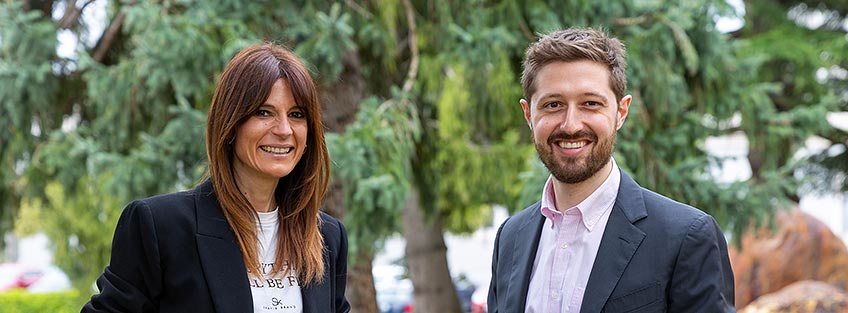08/03/2022
Published in
Diario de Navarra and El Norte de Castilla
Mª Cruz Díaz de Terán
Director of the Online Course training in Equality
Andrea Cocchini
Professor of International Law

The authors of article Mª Cruz Díaz de Terán and Andrea Cocchini
"Gender equality today for a sustainable tomorrow" is the slogan chosen by the United Nations to celebrate International Women's Day on March 8. The choice of coupling two concepts, at first sight without many points in common, such as "gender equality" and "development sustainable", wants to underline the close interdependence that, in reality, exists between them. Moreover, as the final document of the United Nations Rio +20 Sustainable Development lecture development highlighted just 10 years ago, there can be no sustainable development without equality and without the full and effective participation of women in policies, programs and decision-making processes at subject of development sustainable, at all levels.
Gender equality and the empowerment of women and girls are so essential to the achievement of sustainable development that diary 2030, adopted by the United Nations in 2015, includes them among its 17 targets for achieving it (SDG 5). Women and girls, especially in rural areas of the least developed countries, are the ones who suffer most from the harsh environmental, social and economic consequences of climate change, as they are the most dependent on the natural resources threatened by this phenomenon. It is estimated that in the countries on development more than 40% of the agricultural labour force is made up of women; this percentage exceeds 50% in some areas of the African and Asian continents. So much so that in 2008 the United Nations instituted another international day - less well known, but closely related to 8 March - to give visibility to all rural women, victims of constant discrimination (denial of access to credit , land or livestock ownership, among others) that prevent them from working in the countryside on an equal footing with men.
This being the case, women find themselves in a situation that pushes them to respond actively and to take on a leading role in the many ways in which the goal of a sustainable development for all takes shape. Hence the importance of recalling today the social importance of women's entrepreneurship in rural areas. There are many reasons that support the commitment to promote an enterprise that ensures sustainability and promotes collaborative work , while seeking to dignify the work of rural women. Moreover, promoting this type of enterprise is vital to revitalise small municipalities and to prevent our rural areas from continuing to be depopulated. One example is the case of rural tourism: according to the latest rural tourism barometer, 56.5% of rural accommodation in Spain is in the hands of women, as it is they who run more than half of the rural houses and agrotourism in Spain. Thanks to this subject of activities, the Economics of the villages is diversified and receives a boost that ends up benefiting the area as a whole.
Historically, the tourism sector has represented an opportunity for women's empowerment given its great potential to grant a source livelihood and autonomy. It cannot be ignored that the tourism sector has been one of the worst affected by the consequences of the pandemic caused by COVID-19; for this reason, rural tourism and ecotourism are core topic in the recovery of the sector, as they are forms of tourism that are more in line with the needs and demands of travellers in the context of the coronavirus pandemic. And rural tourism fulfils the three dimensions of sustainability: ecological, social and economic.
In this regard, the International Symposium "Sustainability in the tourism sector: implementation and speech" that the University of Navarra will organise next July in San Sebastian, is presented as an interesting point of meeting between institutions, organisations, professionals and academics to analyse the current status sustainability in the tourism sector and the keys to greater sustainability in the future. Undoubtedly, a good opportunity to highlight that the permanence and activity of rural women are essential for the economic and social development of the territory.
